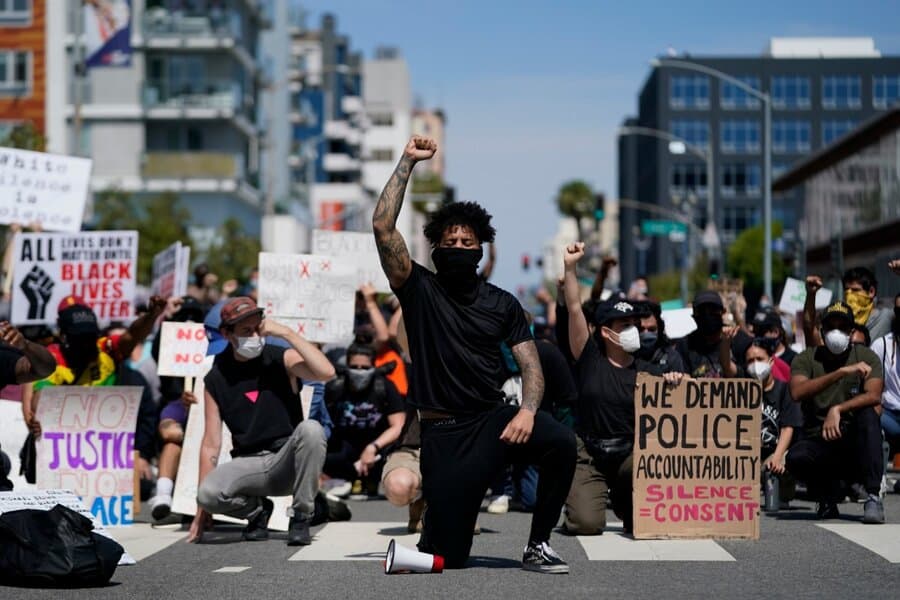
Minnie Che is a student at Harvard Law School.
A day after former officer Derek Chauvin’s conviction by a jury on all three charges against him, Attorney General Merrick B. Garland announced that the Justice Department will open a civil investigation into the Minneapolis Police Department to determine whether it “engages in a pattern or practice of unconstitutional or unlawful policing.” An investigation could lead to a consent decree between the Justice Department and local government to mandate changes in how police officers are trained and how the police department operates. The investigation will probe into whether the Minneapolis Police Department engages in a pattern of excessive force during arrests and protests; whether there is evidence of discriminatory conduct; and whether its actions towards individuals with behavioral health disabilities violates the law. In addition, the police department’s policies, training, supervision, and accountability systems will all be under review for their lawfulness. Ben has written about how police unions are a source of power that allow police officers to be shielded from accountability for racist killings. As a DOJ investigation attempts to promote the answerability of the police to the public, tools of the labor movement – collective bargaining with public oversight, allowing communities to be at the bargaining table, diversity in representation – could be a part of the solution.
President Biden has increased the number of available seasonal guest-worker visas by 22,000, in anticipation of a busy summer season ahead. Every year, the government issues 66,000 H-2B visas to seasonal employers that need additionally staffing during busy months of the year, usually during the summer and winter seasons. These employers include landscapers, resorts, county fairs, and fisheries. Congress allows for the visa cap to be raised by as many as 64,000 additional visas annually. This year, employers submitted applications for 97,000 positions for this summer, and all available visas for the season were filled by Feb. 24. Just weeks ago, the Biden administration allowed a ban on H-1B and other worker visas instated by the Trump administration last June to expire without renewal. Earlier this month, the H-2B Workforce Coalition wrote to Homeland Security Secretary on the need for more visas, “This program serves as a critical safety valve for companies to address seasonal labor needs when there are not a sufficient number of available American workers to meet the demand for these short-term jobs.” Of the additional visas that have been made available in advance, 6,000 of them will be reserved for applicants from countries that make up the Northern Triangle – Guatemala, El Salvador, and Honduras. These countries send the largest number of families to the border seeking asylum.
New York City will introduce a new employment program, Unity Works, this summer for homeless L.G.B.T.Q youth to address the needs of those who identify as lesbian, gay, bisexual, transgender, queer or intersex and are at risk of or are experiencing homelessness. Although a Supreme Court decision guaranteed L.G.B.T.Q. workers protection from workplace discrimination, some lawmakers have attempted to restrict transgender youth’s rights and medical care. Unity Works aims to give support and resources to a vulnerable population of young people in a way that no other program has done before. Starting July 1, 90 individuals between 16 and 24 years old will be connected with jobs and paid internships at businesses committed to fostering an inclusive workplace. It will then provide two years of job training and placement, educational and mental health resources, and access to social services. Even after the two years, the program will have a year of follow-up support for its participants from mental health and case management workers. “When you’re just starting out, and you’re faced with not having support from important adults in your life, and you’re new to the city, you have to navigate figuring out how you’re going to move forward,” says the city’s First Lady, Chirlane McCray, who started the Unity Project to connect city agencies to L.G.B.T.Q youth.
Manhattan’s district attorney, Cyrus R. Vance Jr., has announced that his office will no longer prosecute prostitution and unlicensed massage parlors. This is a significant shift by the high-profile city’s law enforcement offices in how the legal system approaches sex work and how it treats sex workers. In light of this announcement, Vance has moved to dismiss 914 open cases involving prostitution and unlicensed massage. Another 5,800 cases were dismissed for the charge of loitering for the purposes of prostitution, a law that became known as “walking while trans.” Vance stated, “Over the last decade we’ve learned from those with lived experience, and from our own experience on the ground: Criminally prosecuting prostitution does not make us safer, and too often, achieves the opposite result by further marginalizing vulnerable New Yorkers.” Other crimes such as sex trafficking and patronizing sex workers will still be prosecuted. Manhattan joins Baltimore and Philadelphia, amongst other jurisdictions, that no longer prosecute sex workers. In the past, Vance’s office had been declining to prosecute sex worker cases after mandatory counseling sessions; moving forward, counseling sessions would be voluntary only. McCray acknowledged, “The communities hit hardest by the continued criminalization of sex work and human trafficking are overwhelmingly L.G.B.T.Q., they are people of color, and they are undocumented immigrants… Sex work is a means of survival for many in these marginalized groups.”
In international news, a South Korean court ruled that Korean women forced into sexual slavery by Japan during World War II – also known as “comfort women” – could not seek compensation from the Japanese government. This decision has angered survivors and goes against an earlier decision ordering the Japanese government to pay 100 million won ($89,400 USD) to each of the 12 victims of sexual slavery. During the war, Korean girls and women were forced to provide sex to Japanese troops, often under the guise of employment or as a means to pay off a relative’s debt. In January, a South Korean judge denied Japan’s claim of state sovereignty as immunity against “anti-humanity acts systematically planned and perpetuated by the Japanese Empire.” Yesterday, another judge ruled in favor of Japan. An advocacy group in Seoul has spoken out on the ruling that denied reparations to the women, saying “It will go down in history as a shameful case where the judge shirked his duty as a last bastion of human rights.”






Daily News & Commentary
Start your day with our roundup of the latest labor developments. See all
December 12
OH vetoes bill weakening child labor protections; UT repeals public-sector bargaining ban; SCOTUS takes up case on post-arbitration award jurisdiction
December 11
House forces a vote on the “Protect America’s Workforce Act;” arguments on Trump’s executive order nullifying collective bargaining rights; and Penn State file a petition to form a union.
December 8
Private payrolls fall; NYC Council overrides mayoral veto on pay data; workers sue Starbucks.
December 7
Philadelphia transit workers indicate that a strike is imminent; a federal judge temporarily blocks State Department layoffs; and Virginia lawmakers consider legislation to repeal the state’s “right to work” law.
December 5
Netflix set to acquire Warner Bros., Gen Z men are the most pro-union generation in history, and lawmakers introduce the “No Robot Bosses Act.”
December 4
Unionized journalists win arbitration concerning AI, Starbucks challenges two NLRB rulings in the Fifth Circuit, and Philadelphia transit workers resume contract negotiations.